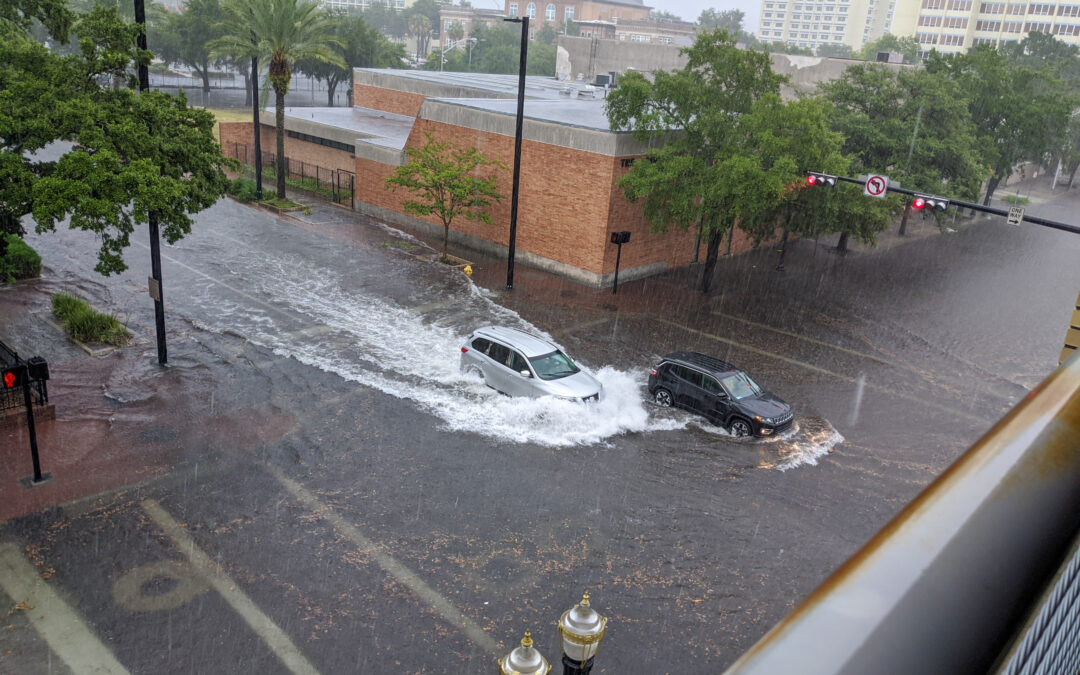Even though we have been fortunate so far this year, don’t forget that hurricane season extends through the end of November. We are not out of the woods yet.
Also, don’t forget that climate change is not some distant threat – we’re seeing the effects right here at home in our communities throughout the St. Johns River watershed.
We are already experiencing the effects of climate change, and projections of future conditions are dire, especially if we do not take actions now to dramatically reduce emissions. Adapting to the impacts of climate change will only become more challenging and more expensive the longer we wait.
Warming Watershed
In a warmer world, evaporation from the land and oceans adds more moisture to the air and warmer temperatures allow the air to hold more water vapor. This increased moisture leads to more intense rainfall, especially during extreme events. Warmer water temperatures and more moisture in the air can also fuel more intense hurricanes.
As a result, we will likely experience more frequent flooding and an increase in stormwater runoff, flushing more pollution and sewage into our waterways.
More pollution and warmer waters will also lead to more frequent algae blooms and more fish kills.
In addition, rising sea levels are making storm surge events worse, causing more septic tanks to fail, pushing saltwater further upstream, and threatening our aquifer with saltwater intrusion. Higher water levels in the St. Johns also put communities at a greater risk to flooding during storms, and kills submerged grasses due to light depravation. This is occurring now.
What Is Causing Climate Change?
The vast majority of climate scientists (over 97%) have concluded that the primary cause is human activities that increase the concentration of heat-trapping gases, such as carbon dioxide and methane, in the atmosphere.
Main sources of greenhouse gas emissions:
- Burning fossil fuels for energy and transportation
- Deforestation
- Certain agricultural practices like livestock production
What’s Next?
While the challenges posed by climate change are daunting, know that there is hope and you can make a difference. We have the technology and know how to significantly reduce emissions. We just need the political will to do so.
Contact your elected leaders and let them know that hurricane supply kits and evacuation plans are not enough. Urge them to protect our families and our river by enacting policies and investing in strategies that will reduce greenhouse gas emissions and create more resilient communities.
The time is now to have your hurricane supply kit in place, but we also need to ensure that our city and state leaders are taking aggressive steps to reduce Greenhouse Gas (GHG) emissions and adapt to the impacts of a warming planet. This includes investing in green infrastructure, implementing resilience policies, replacing coal electric generation with renewable energy, and protecting the forests, wetlands and saltmarshes that sequester carbon and protect our communities from flooding and storm surge.
